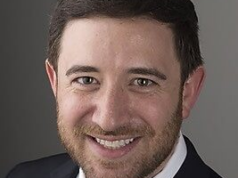 A team at the University of Washington in Seattle, USA, has received a funding award through the Patient-Centered Outcomes Research Institute (PCORI) Eugene Washington Engagement Awards programme to provide a patient-centric approach to those with—and at risk of—aortic dissection.
A team at the University of Washington in Seattle, USA, has received a funding award through the Patient-Centered Outcomes Research Institute (PCORI) Eugene Washington Engagement Awards programme to provide a patient-centric approach to those with—and at risk of—aortic dissection.
Led by Sherene Shalhub, associate professor of surgery in the institution’s division of vascular surgery, the Aortic Dissection Collaborative also includes patients, researchers, and healthcare providers as partners in patient-centred outcomes research.
The team aims to improve the management of aortic dissection and increase quality of life for people impacted by this condition. To do so, the collaborative is engaging stakeholders to build a research infrastructure focused on patient-centred outcomes. It will feature research training; support and networking among patients, physicians, and researchers with expertise in aortic dissection; research consortia dedicated to aortic dissection; industry stakeholders; and patient advocacy groups.
The main deliverable over the next two years is to create a virtual research network and establish research priorities among the stakeholder group, Shalhub explained. These research priorities will then be used to guide future research proposals that reflect patient-centred priorities.
Initial PCORI funding began in August last year, with additional funding awarded in May to enhance the work of the collaborative. “The new enhancement award provides a critical opportunity to expand our current work to include the impacts of the COVID-19 pandemic on people living with or at risk for aortic dissection, such as people affected with Marfan syndrome, Loeys-Dietz syndrome, and Vascular Ehlers-Danlos syndrome,” said Shalhub.
As COVID-19 took hold across the world, the patient collaborative members expressed concerns over their potential susceptibility to the novel coronavirus, whether they were at higher risk for adverse outcomes from the virus, and on their ability to access necessary ongoing care related to aortic dissection.
Collaborative participants who represent healthcare providers, research and advocacy confirmed that the lack of evidence about how COVID-19 affects aortic dissection patients represents a critical knowledge gap. This may negatively affect the aortic dissection community if it remains unaddressed, Shalhub said.
Key areas the team will investigate in the coming months include how COVID-19 is affecting access to ongoing care, including outpatient visits and operations; changes in patterns of care-seeking behavior for acute symptoms or complications of aortic dissection (e.g., whether patients are withholding visits to the emergency department); and how COVID-19 affects the risk of complications among people with or at risk for aortic dissection.
Starting 3 August, the Aortic Dissection Collaborative plans to disseminate a COVID-19-specific survey for patients, family members, and physicians. This survey adds to continuing support for another designed to capture aortic dissection patient experiences. “Both surveys will form the basis to understand the concerns and experiences of those living with aortic dissection and will guide our next steps in research topic identification and prioritisation,” added Shalhub.













